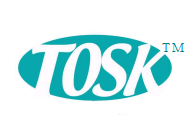First Drug Discovered in a Fruit Fly Used in Cancer Patients

Drug developer Tosk, Inc.,
Innovative drug developer Tosk designs drug to eliminate painful, life-threateningl side effects of front-line cancer therapies
“Fruit flies have played an important role in scientific research for generations,” said Brian Frenzel, Tosk’s CEO, pointing out that six Nobel prizes in medicine or physiology have been awarded to scientists based on their research using the fruit fly, the latest in 2017. “However,” he added, “Drosophila have not been widely used for drug discovery and development by the pharmaceutical industry. Tosk is an exception. Our scientists have developed two proprietary drug discovery platforms that use fruit flies to identify new drugs to combat cancer and other diseases.”
Tosk, like the Nobel prize winners, uses the fruit fly because it has surprising similarities to humans at the genetic and molecular levels. Adult fruit flies, for example, have body parts that mimic mammalian hearts, kidneys, digestive tracts, and lungs. Nearly 70 percent of human disease-related genes have analogs in the fruit fly. “Because the life cycle of a fruit fly is short, only 50 days from birth to death and only two weeks from birth to adulthood, drug discovery in flies can be done quickly and cost effectively,” Frenzel says. “Using non-mammals as a discovery tool may yield new drugs that could not have been found using other, more traditional methods.”
Tosk selected TK-90 out of tens of thousands of compounds using what the company calls the Side Effect Fly™. Tosk incubates test compounds with a toxic chemotherapeutic that would otherwise prevent eggs from hatching and developing. Compounds that increase survival and result in larvae or mature fruit flies are "hits." Hits are tested in cell culture models using human cancer cells to select "leads" that do not affect the cancer killing efficacy of the chemotherapy. Tosk’s researchers then move to traditional models to confirm safety, adverse effect prevention, and non-interference with the beneficial effects of the cancer therapy.
“Instead of picking a target and fitting compounds to match, as most pharmaceutical companies do, our scientists let the fruit fly tell us which compounds are safe and effective. We then work backward to identify the molecular target or targets through which the drug works, opening what we believe is an exciting new vista on the process of drug discovery.”
Tosk has innovated a second, perhaps even more important, drug discovery platform, which it calls the Genetically Modified Fly™. Tosk integrates a human disease gene into Drosophila and then tests compounds for their ability to block the activity of the disease gene. This model is designed to discover drugs for disease targets that have previously been considered “undruggable.”
In addition to TK-90, Tosk has three other new drugs in its pharmaceutical development pipeline. The most advanced is TK-39, which prevents the dose-limiting, permanent, and potentially fatal damage to the heart caused by doxorubicin and other widely used, frontline cancer therapies. Another side effect preventing drug is TK-88, which prevents permanent kidney damage caused by platinum-based drugs such as carboplatin and cisplatin. Both were discovered using the Side Effect Fly.
Tosk’s “cancer moonshot” program addresses a top priority for the U.S. National Cancer Institute (NCI), developing a drug to block the activity of the human kRAS cancer gene. Funded by a $2 million grant from NCI, Tosk has used its Genetically Modified Fly for this purpose. The mutant kRAS gene drives as many as 30 percent of all cancers, including 90 percent of pancreatic, 45 percent of colon, and 35 percent of lung cancers.
Tosk’s fruit fly based drug screening technologies afford a new method to find small molecule, inexpensive drugs for difficult targets. “We think our fly models give us an advantage, a way to succeed where others have failed,” Frenzel says. Tosk’s first drug candidate, TK-90, has confirmed this in human clinical studies. Tosk believes that this is just the beginning, and plans to deliver many more drugs to improve outcomes for cancer patients.
Tosk, Inc. is a privately held biopharmaceutical company that develops new drugs to prevent the adverse side effects of existing, widely-used cancer therapies and to block the activity of cancer genes. For further information on the company, see www.tosk.com.
Brian Frenzel
Tosk, Inc.
+1 408-245-6838
email us here
Legal Disclaimer:
EIN Presswire provides this news content "as is" without warranty of any kind. We do not accept any responsibility or liability for the accuracy, content, images, videos, licenses, completeness, legality, or reliability of the information contained in this article. If you have any complaints or copyright issues related to this article, kindly contact the author above.
